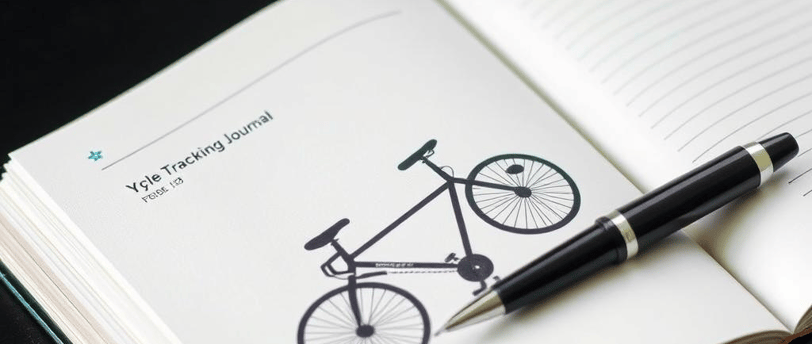Listen to Your Cycle & Adjust Lifestyle Accordingly: How to Optimize Your Life Based on Science
🧘WELLNESS TIPS🌸 HORMONAL BALANCE & WOMEN’S WELLNESS


In an age where productivity and efficiency reign supreme, we often overlook the subtle cues our bodies provide about our health and well-being. Among these cues is the menstrual cycle, a powerful biological rhythm that influences not just physical health but emotional and mental well-being as well. By understanding the different phases of the menstrual cycle and aligning our lifestyles accordingly, we can harness scientific evidence to optimize productivity, energy levels, and general health.
The Menstrual Cycle: A Brief Overview
The menstrual cycle is generally divided into four distinct phases: the menstrual phase, the follicular phase, the ovulatory phase, and the luteal phase. Each phase has unique hormonal fluctuations that impact mood, energy levels, cognitive function, and physical capabilities.
Menstrual Phase (Days 1-5): This phase marks the start of the cycle with menstruation. Hormone levels, particularly estrogen and progesterone, are at their lowest. Women often experience fatigue, cramping, and low energy. This is a time when the body signals the need for rest and self-care.
Follicular Phase (Days 6-14): Following menstruation, the body prepares for ovulation. During this phase, estrogen levels rise, leading to an increase in energy, creativity, and motivation. Women often feel more sociable and productive, making it an ideal time for brainstorming, initiating projects, and socializing.
Ovulatory Phase (Days 14-16): This short phase is peak fertility and is characterized by the highest levels of estrogen. Women often experience heightened energy, confidence, and social magnetism. This is an excellent time for important meetings, public speaking, and assertive behaviors.
Luteal Phase (Days 17-28): After ovulation, the body prepares for a potential pregnancy. Progesterone rises, which may cause fluctuations in mood and energy. Some may experience symptoms of PMS (premenstrual syndrome) such as irritability, bloating, and fatigue. This phase generally calls for a more introspective lifestyle with an emphasis on rest, self-care, and planning.
Understanding these phases and their effects is the first step in listening to your body and optimizing your lifestyle.
The Role of Scientific Evidence
There’s a growing body of scientific evidence supporting the idea that aligning lifestyle choices with the menstrual cycle can enhance well-being. A 2018 study published in the Journal of Psychosomatic Research found that women’s physical and emotional states varied significantly across their cycles. Researchers observed that energy levels, mood swings, and even cognitive functions fluctuated according to hormonal changes.
This kind of biological awareness also aligns with the principles of circadian rhythms — our body’s natural 24-hour cycle that regulates sleep, hormone release, and other bodily functions. Just as we’re more alert at certain times of the day due to circadian rhythms, our menstrual cycle adds another layer of complexity to our internal clock.
Adjusting Your Lifestyle: The Practical Approach
1. For the Menstrual Phase: Prioritize Rest
During menstruation, chronic fatigue can make daily tasks feel monumental. This is not the time to push through; instead, prioritize rest and self-care. Engage in gentle activities like yoga or walking, focus on nurturing your body with nutritious foods like iron-rich leafy greens, and allow yourself time to recharge.
2. For the Follicular Phase: Boost Productivity
With rising estrogen levels, this is the most favorable phase for creativity and productivity. Take advantage of this time to set new goals, initiate projects, and engage in brainstorming sessions. Exercise can also become more intense during this phase, so incorporating high-energy workouts can be beneficial.
3. For the Ovulatory Phase: Embrace Social Interactions
This phase is marked by peak energy levels. Use this burst of vitality to engage in social activities, community involvement, or even networking events. It’s an ideal time for presentations and any task requiring confidence and charisma. Harness your energy to create connections and share ideas, as you may find that your words carry more weight during this phase.
4. For the Luteal Phase: Reflect and Plan
As the luteal phase sets in, it’s wise to shift your focus inward. Energy may start to wane, and fluctuations in mood may occur. This is an excellent time for reflection. Utilize tools like journaling to assess the accomplishments of the previous phases, and spend time planning for the upcoming cycle. Engage in low-energy activities that promote relaxation, such as meditation or gentle stretching.
The Future of Women’s Health
Listening to our menstrual cycles is not just about individual well-being; it has broader implications for women’s health. The stigma surrounding menstruation can lead to a lack of understanding of its importance in overall health. By advocating for cycle awareness and discussing menstrual health openly, we can pave the way for better research, more individualized healthcare, and improved workplace policies that consider women's needs.
Organizations implementing menstrual leave policies and academic institutions emphasizing cycle awareness can contribute to a culture where women feel empowered to listen to their bodies. Scientific evidence shows that a lack of understanding about the menstrual cycle can lead to decreased productivity, reduced job satisfaction, and mental health issues.
Conclusion
The menstrual cycle is not merely a biological process; it’s a rhythm that can guide us toward better health, productivity, and emotional well-being. By aligning our lifestyle choices with the phases of our cycles, we can maximize our potential, improve our health, and cultivate a deeper connection with our bodies.
As we continue to explore the nuances of women's health, embracing the scientific evidence surrounding menstrual cycles can act as a transformative catalyst for both personal and societal change. It’s time to listen to our cycles and adjust our lives accordingly. After all, understanding our biology is the key to unlocking our fullest potential.
